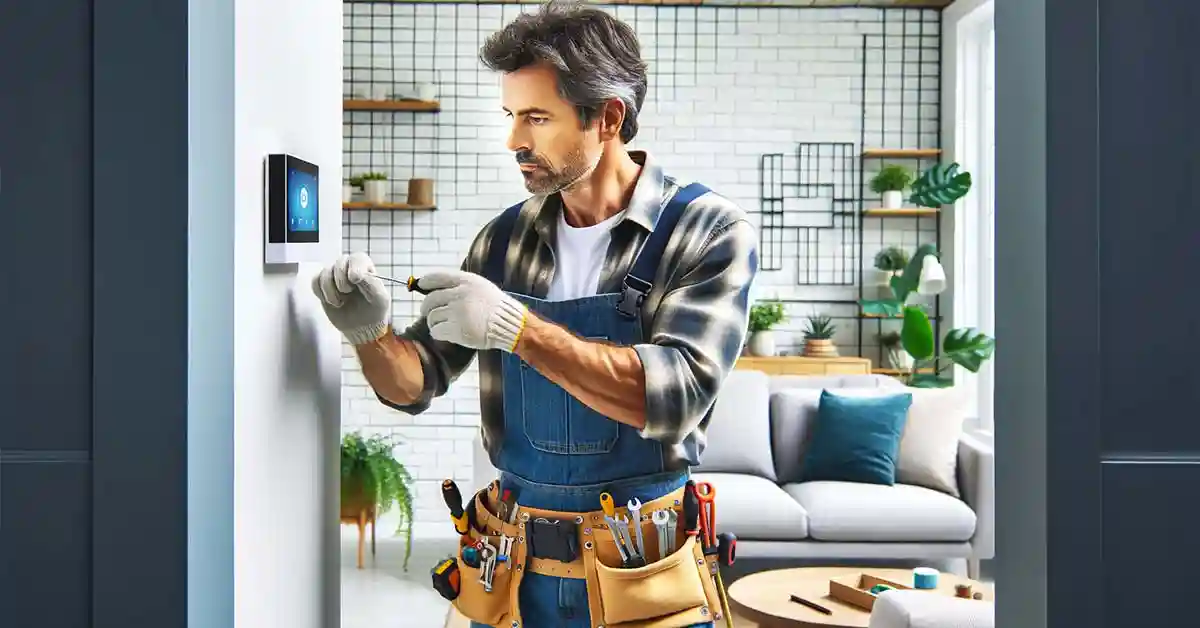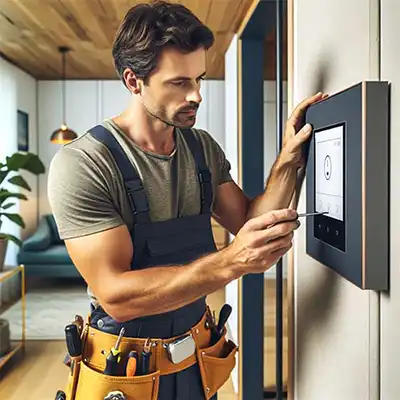
The integration of smart technology into homes is transforming the landscape of home improvement and maintenance. The rise of the Internet of Things (IoT) has enabled smart homes to become a reality, presenting a lucrative opportunity for handymen. As homeowners increasingly seek to incorporate smart devices for convenience, efficiency, and security, the demand for skilled professionals in installing and servicing these systems is growing rapidly. This article explores the evolving world of smart home installations, highlighting the opportunities, essential skills, challenges, and the future for handymen in this dynamic field.
Table of Contents
Market Trends in Smart Home Technology
- The smart home market is witnessing explosive growth, with projections indicating a multi-billion dollar industry in the next few years. This growth is driven by advancements in IoT technologies, making smart home devices more accessible and affordable.
- High-demand devices include smart thermostats like Nest and Ecobee, automated lighting systems from Philips Hue, advanced security cameras from brands like Ring and Arlo, and voice-controlled assistants such as Amazon Alexa and Google Home.
- Homeowners are increasingly driven by the desire for convenience, energy savings, and enhanced security. Smart homes cater to these needs by offering remote control of home systems, personalized automation routines, and real-time monitoring capabilities.
- Integration with mobile technology has made control of smart home devices more user-friendly, increasing their appeal to a broader audience.
- Emerging technologies like 5G are expected to further enhance the functionality and reliability of smart home devices, potentially leading to new applications and services.
Try our Handyman Software to help manage your business
Opportunities for Handymen in Smart Home Installations
- Expanding into smart home installations opens new revenue avenues for handymen. This specialization can diversify their business offerings, making them more attractive to a broader client base.
- Targeting tech-savvy homeowners, especially millennials who are more likely to invest in home technology, can create a niche market.
- Building partnerships with manufacturers of smart devices can be a game-changer, leading to specialized training opportunities and potentially exclusive installation contracts.
- Providing maintenance and upgrade services for existing smart home systems can generate ongoing revenue streams and foster long-term customer relationships.
- Developing expertise in specific types of smart home systems, such as security or energy management, can help handymen stand out in a competitive market.
Essential Skills for Smart Home Installation
- Understanding the principles of IoT and networking is essential for smart home installations. Handymen need to be adept at setting up and troubleshooting wireless networks and integrating various smart devices.
- The technology landscape is constantly evolving, making continuous learning and skill development vital. Handymen should stay updated with the latest trends and field service systems.
- Earning certifications in smart home technologies can significantly enhance a handyman's credibility and attract a more tech-oriented clientele.
- Familiarity with different smart home platforms and ecosystems, such as Google Home, Amazon Alexa, and Apple HomeKit, is increasingly important for effective installation and troubleshooting.
- Developing strong problem-solving skills and the ability to think creatively when integrating diverse smart home technologies can greatly benefit installation projects.

Challenges in Smart Home Installations
- Smart home installations can be intricate, demanding a blend of traditional handyman expertise and up-to-date technological knowledge.
- Ensuring the security and privacy of internet-connected systems is a major concern. Handymen must be knowledgeable about cybersecurity best practices.
- Keeping informed about the latest smart home trends, devices, and advancements is critical to offer relevant and state-of-the-art services.
- Dealing with compatibility issues between different brands and generations of smart devices is a common challenge that requires technical finesse.
- Managing customer expectations, especially in terms of functionality and ease of use, can be challenging and requires effective communication skills.
Marketing Smart Home Installation Services
- Effective handyman marketing strategies should target homeowners who are most likely to invest in smart technology, such as millennials, tech enthusiasts, and energy-conscious consumers.
- Digital marketing channels, including social media, SEO, and local online advertising, are powerful tools for reaching the target audience.
- Building a portfolio of successful installations and sharing customer reviews can establish credibility and expertise in the field.
- Creating educational content, such as blog posts and videos, about the benefits and possibilities of smart home technology can engage potential clients and showcase the handyman’s knowledge.
- Networking with real estate agents and home builders can open up opportunities for referrals and collaborations on new construction and renovation projects.
Just starting? Try our free Handyman Estimate Template PDF
Future of Smart Home Technology and the Handyman’s Role
- The future of smart home technology is promising, with advancements like AI integration, IoT expansion, and more comprehensive automation systems on the horizon.
- The role of the handyman is likely to evolve beyond installation to include consulting and advisory services, advising homeowners on the best smart home solutions.
- Advances in voice recognition and machine learning will continue to make smart homes more intuitive and user-friendly, potentially increasing the market for installations and services.
- The growing emphasis on sustainability and energy efficiency in smart homes may lead to new opportunities in green technology installations and consultations.
Conclusion
With the smart home installation market expanding rapidly, handymen have a unique opportunity to grow their business and position themselves at the forefront of this technological revolution. Embracing these changes and adapting to the new demands of the market will be key to thriving in the era of smart home technology.
